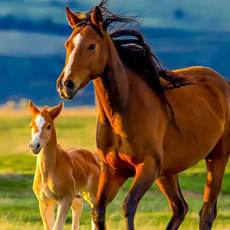- Afrikaans
- Albanian
- Amharic
- Arabic
- Armenian
- Azerbaijani
- Basque
- Belarusian
- Bengali
- Bosnian
- Bulgarian
- Catalan
- Cebuano
- Corsican
- Croatian
- Czech
- Danish
- Dutch
- English
- Esperanto
- Estonian
- Finnish
- French
- Frisian
- Galician
- Georgian
- German
- Greek
- Gujarati
- Haitian Creole
- hausa
- hawaiian
- Hebrew
- Hindi
- Miao
- Hungarian
- Icelandic
- igbo
- Indonesian
- irish
- Italian
- Japanese
- Javanese
- Kannada
- kazakh
- Khmer
- Rwandese
- Korean
- Kurdish
- Kyrgyz
- Lao
- Latin
- Latvian
- Lithuanian
- Luxembourgish
- Macedonian
- Malgashi
- Malay
- Malayalam
- Maltese
- Maori
- Marathi
- Mongolian
- Myanmar
- Nepali
- Norwegian
- Norwegian
- Occitan
- Pashto
- Persian
- Polish
- Portuguese
- Punjabi
- Romanian
- Russian
- Samoan
- Scottish Gaelic
- Serbian
- Sesotho
- Shona
- Sindhi
- Sinhala
- Slovak
- Slovenian
- Somali
- Spanish
- Sundanese
- Swahili
- Swedish
- Tagalog
- Tajik
- Tamil
- Tatar
- Telugu
- Thai
- Turkish
- Turkmen
- Ukrainian
- Urdu
- Uighur
- Uzbek
- Vietnamese
- Welsh
- Bantu
- Yiddish
- Yoruba
- Zulu
Nov . 18, 2024 11:25 Back to list
Essential Nutritional Guidelines for Optimal Horse Health and Performance
Nutrition for Horses Ensuring a Healthy and Balanced Diet
Horses are majestic creatures that require meticulous care, particularly when it comes to their nutrition. Proper nutrition is vital for their overall health, performance, and well-being. There are several key components to consider when formulating a diet for horses carbohydrates, proteins, fats, vitamins, and minerals.
1. Carbohydrates The Primary Energy Source
Carbohydrates serve as the primary energy source for horses. They are found in fibrous plants, grains, and forages. Forages, such as hay and pasture grasses, are essential as they provide not only energy but also fiber, which is crucial for digestive health. Horses have evolved to consume large quantities of roughage, and their digestive systems are designed to handle a high-fiber diet. Legume hays like alfalfa are also beneficial as they offer higher protein and energy levels compared to grass hays, making them suitable for growing, pregnant, or working horses.
Grains, such as oats and barley, can be included in a horse’s diet for additional energy, especially for those involved in strenuous work or competition. However, grain-based diets should be balanced with appropriate amounts of forage to prevent digestive issues such as colic or laminitis.
2. Proteins Building Blocks of the Body
Proteins are vital for growth, muscle development, and overall maintenance of bodily systems. Horses require protein from their diet to repair tissues and produce enzymes and hormones. The quality of protein is equally important; it should contain all of the essential amino acids necessary for a horse's health. High-quality protein sources include soybean meal, alfalfa, and certain grains.
The protein requirement can vary based on the horse’s age, activity level, and overall condition. Growing foals, lactating mares, and horses in intense training programs need higher protein levels compared to sedentary or older horses.
3. Fats A Concentrated Energy Source
nutrition for horses

Fats are another important part of a horse's diet, providing a concentrated source of energy. They are beneficial for promoting coat health and can help in maintaining weight, especially for horses that may be picky eaters or for those needing to gain weight. Vegetable oils, such as corn or soybean oil, and fats from rice bran or flaxseed are excellent sources.
It's essential to introduce fats gradually into a horse's diet to prevent digestive upset. The typical fat content in a horse's diet should not exceed 10-12% to ensure a balanced intake of nutrients.
4. Vitamins and Minerals Micronutrients for Optimal Health
Vitamins and minerals play crucial roles in the overall health and functionality of horses. Horses require vitamins A, D, E, and K, as well as B vitamins, which are often synthesized in their gut. Depending on diet and forage quality, supplementation may be necessary, particularly for minerals such as calcium, phosphorus, magnesium, and trace minerals like zinc, copper, and selenium.
For example, calcium and phosphorus ratios are vital for bone health, especially in young, growing horses. Additionally, electrolytes are crucial for performance horses, particularly in hot weather or during strenuous work.
5. Water The Forgotten Nutrient
While often overlooked, water is arguably the most important nutrient for horses. Adequate hydration is essential for digestion, nutrient absorption, and temperature regulation. Horses should have access to clean, fresh water at all times, as they can drink up to 10-12 gallons a day, depending on their activity level and environmental conditions.
Conclusion
A well-balanced diet tailored to a horse's specific needs is paramount for its health and performance. Horse owners should be vigilant in monitoring their horses' diets, ensuring they receive the right proportions of carbohydrates, proteins, fats, vitamins, and minerals. Consulting with a veterinarian or an equine nutritionist is always a wise decision to develop a tailored feeding regimen. By prioritizing proper nutrition, we can ensure that our equine companions lead healthy, active, and happy lives.
-
Guide to Oxytetracycline Injection
NewsMar.27,2025
-
Guide to Colistin Sulphate
NewsMar.27,2025
-
Gentamicin Sulfate: Uses, Price, And Key Information
NewsMar.27,2025
-
Enrofloxacin Injection: Uses, Price, And Supplier Information
NewsMar.27,2025
-
Dexamethasone Sodium Phosphate Injection: Uses, Price, And Key Information
NewsMar.27,2025
-
Albendazole Tablet: Uses, Dosage, Cost, And Key Information
NewsMar.27,2025













